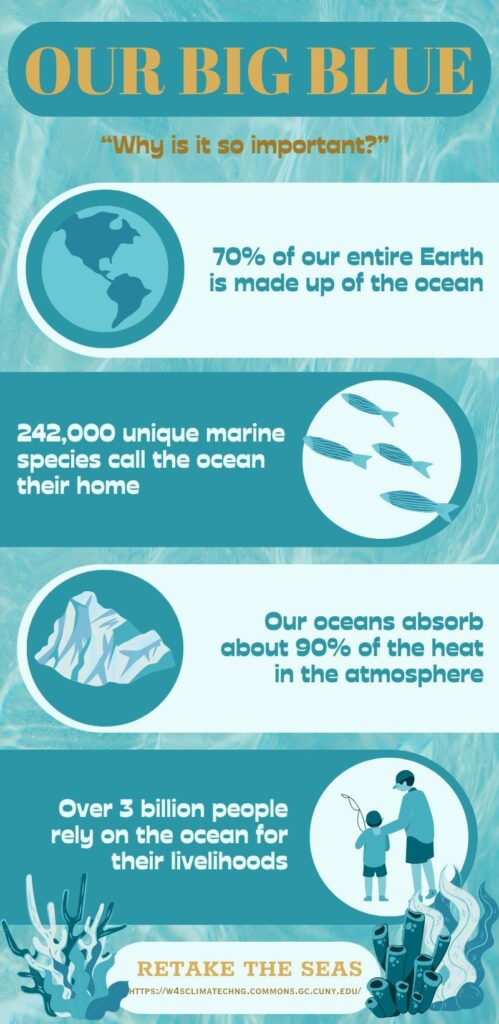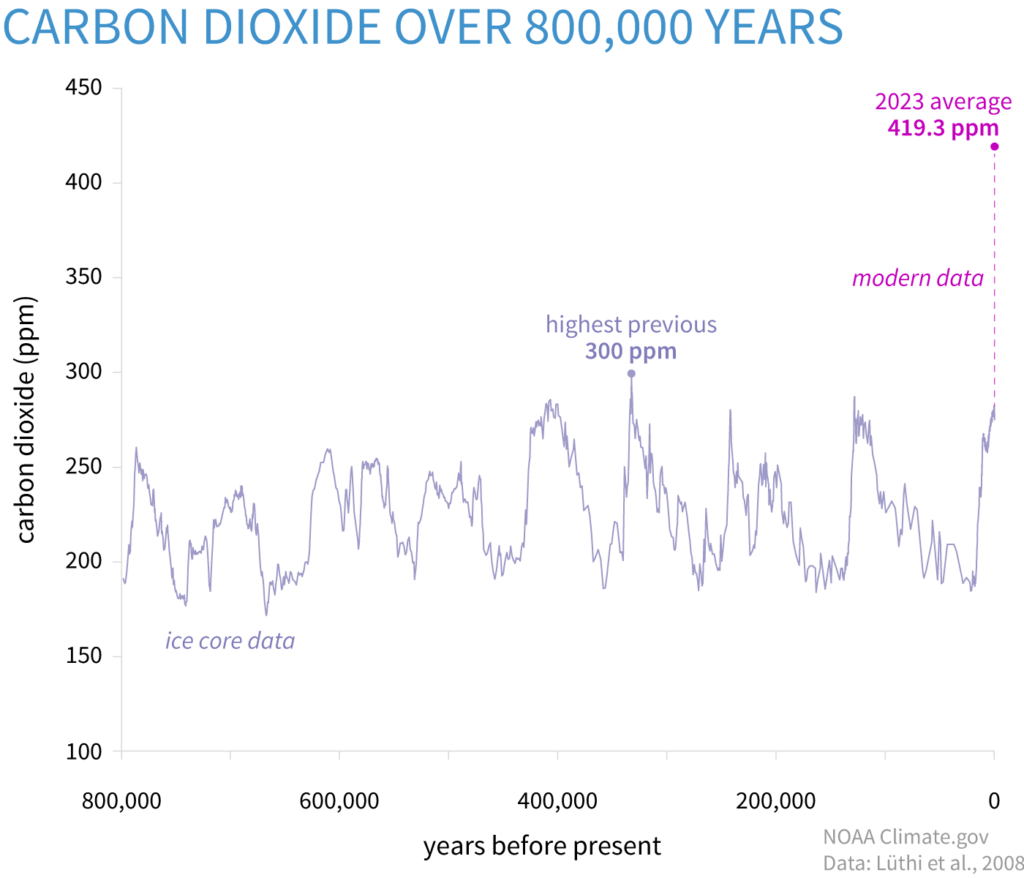Big Blue: The Importance of Our Oceans
SPACER
We all understand that our oceans are vital; taking up most of our entire Earth and containing so many unique marine species, the oceans provide an incredibly diverse and important ecosystem that in the long term will affect everyone. We all understand that pollution is an issue that is increasing every day, and every hour, and know that climate change is damaging our planet near-irreversibly.
But why does it matter so much?
HOW DOES OUR EARTH WORK?
Think of our Earth as a water bottle.
When the cap is closed, you can’t add or take out any water, but the water inside can still get warmer or colder.
And like a water bottle, Earth can’t add or take out any materials, but the Earth can still get warmer or colder because of the Sun’s rays. This is called a ‘closed’ system- we can’t exchange materials like water, rocks, or plants, but we can exchange energy with things outside our atmosphere.
This means two very important things;
- The amount of materials we have is limited. (What we have is what we have!)
- If changes are made to one part of the Earth, it’s going to affect everyone and everything else.
This means that climate change affects everything and everything. And unfortunately, our oceans are being affected the most.

SPACER
1. 70% of our entire Earth is made up of the ocean.

Most of our Earth is made up of the ocean, which means that our oceans also produce about 50% of the oxygen in the atmosphere, and absorbs about 20% CO2 emissions in it as well. Plants, algae, and cyanobacteria eat up the absorbed CO2, and are all responsible for producing oxygen.
However, the amount of CO2 has increased so much that oxygen-producing algae are unable to convert all of it into oxygen. The CO2 is steadily killing off a lot of species that we rely on in order to live.
Additionally, it leads to the ocean becoming much more acidic, which you can learn about in The Ocean; Acid Rainwater and Seawater.
SPACER
2. 242,000 unique marine species call the ocean their home.

From fish to crabs, and whales to sharks, there’s many marine species that live and thrive underwater. Similar to the plants and algae mentioned above, these marine species also play a large role in keeping ecosystems healthy- especially with how vast and connected the ocean is to the entire world.
SPACER
3. Our oceans absorb over 90% of the heat in the atmosphere.
Think of our oceans like a sponge. A larger sponge is going to naturally absorb more water than a smaller sponge; and our ocean absorbs extra heat in the Earth’s atmosphere because it takes up a larger amount of surface area than the atmosphere does (air doesn’t have a stable shape).
Oceans are the largest heat sink on the planet. They absorb 90% of the excess heat caused by climate change. Oceans are also a very efficient carbon sink, absorbing 23% of human-caused CO2 emissions.
The World Bank Organization
Doctor Nobuo Mimura of The Japan Academy, who studied the effects of increasing sea levels, explains that because the ocean is so large and absorbs heat so well, it takes much longer for it to release that heat. This, a natural process that evens out the temperature in our atmosphere, is starting to become an issue as the temperature in our atmosphere has been increasing so sharply. All that stored heat in the oceans makes them warmer, which leads to glaciers melting, which rises sea levels.
Additionally, this heat kills off a lot of vital algae and bacteria that we need to regulate our ecosystem, which you can learn about in Coral Reefs; The Decaying Rainforests of the Sea.
SPACER
4. Over 3 billion people rely on the ocean for their livelihoods.
Many coastal jobs play a large role in in the U.S. economy;
- 14% of coastal counties produce 48% of the nation’s GDP
- 300 million jobs (1/45 people) depend on ocean resources
- In 2017, the ocean economy contributed $307 billion to U.S. GDP
- Tourism/recreation account for 73% of ocean economy employment
But the three billion people who depend on the oceans are from mostly developing countries, where tourism and fisheries are the key sources of income. The United States relies on many developing countries for their seafood without “sufficient consideration for environmental and social sustainability”, which results in low-paying jobs and environmental degradation (OECD).
SPACER
IN CONCLUSION
Our ocean is incredibly important for so many reasons, and we need to take much better care of it if we want it to thrive and continue to live. Below are several categories you can look at if you’re interested;
- If you take a look at the ENTANGLED IN PLASTIC section, you’ll learn more about how plastic and pollution is also damaging our seas.
- If you take a look at the AQUATIC CLIMATE CHANGE section, you’ll learn more about how marine species are being affected by pollution and climate change.
- If you take a look at the UNDERWATER FORESTS section, you’ll learn more about how the underwater ecosystem is placed at risk. [You’re here!]
Join us in our mission to protect our oceans for future generations. Together, we can turn the tide on plastic pollution and create a brighter, cleaner future for all.
SPACER
RESOURCES
Lindsey, R. (2024, April 9). Climate change: Atmospheric carbon dioxide. NOAA Climate.gov. https://www.climate.gov/news-features/understanding-climate/climate-change-atmospheric-carbon-dioxide. Accessed April 30, 2024.
Mimura, N. (2013). Sea-level rise caused by climate change and its implications for Society. Proceedings of the Japan Academy, Series B, 89(7), 281–301. https://www.ncbi.nlm.nih.gov/pmc/articles/PMC3758961/ Accessed 28 April, 2024.
OECD. (2021, January). Ocean economy and developing countries. OECD. https://www.oecd.org/ocean/topics/developing-countries-and-the-ocean-economy/. Accessed 29 April, 2024.
World Bank Group. (2023, November 25). Climate Explainer: Blue carbon and its importance in tackling climate change. World Bank. https://www.worldbank.org/en/news/feature/2023/11/21/what-you-need-to-know-about-blue-carbon. Accessed 29 April, 2024.

